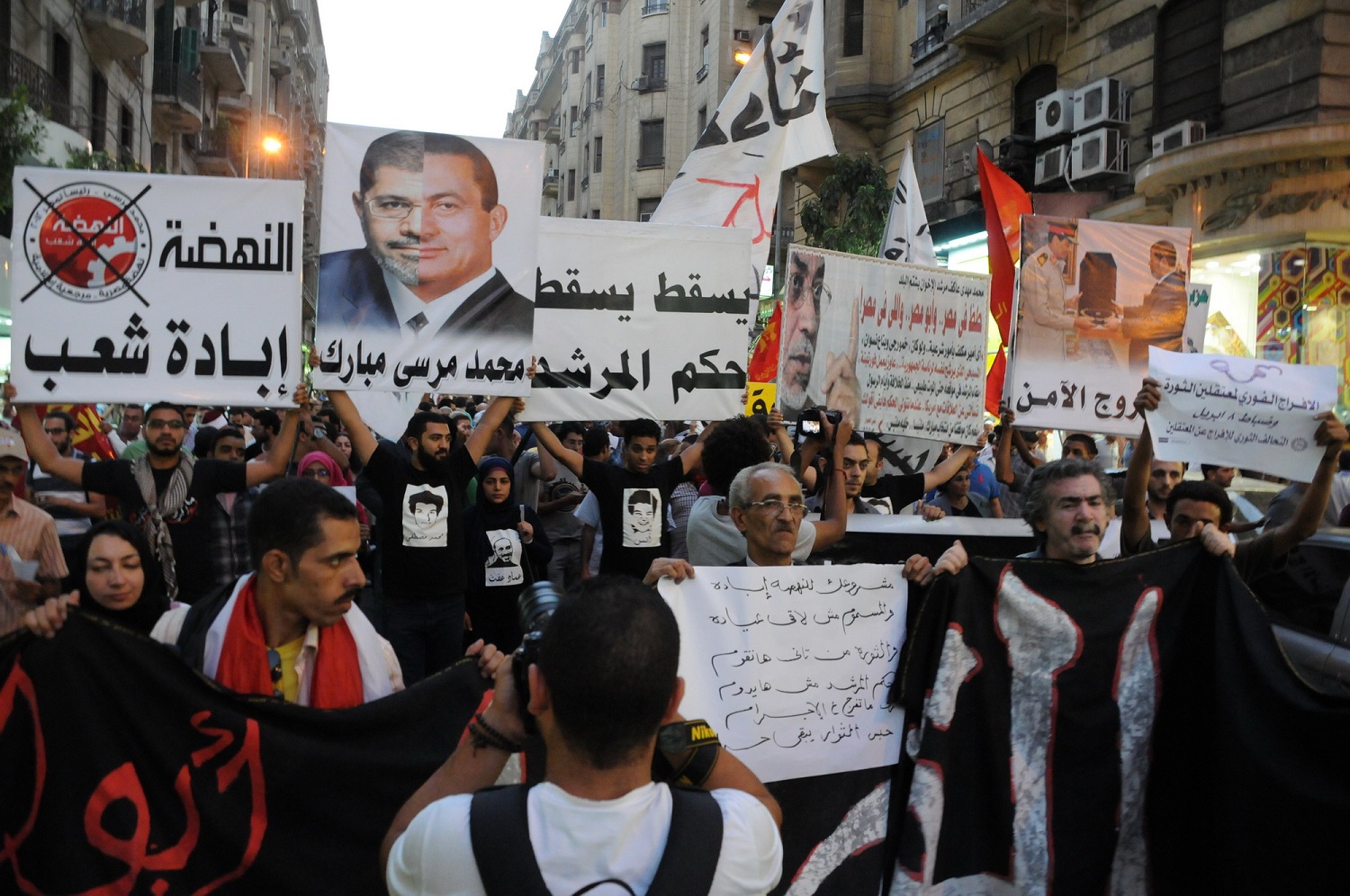CAIRO: Tunisians in Egypt are caught in the election fever sweeping the country as they gear up for their own historic elections since former president Zine El-Abidine Ben Ali was toppled.
"I am getting to know the different political parties, their programs and who are the people on their lists, I check the statements they issue when something happens," explained Ines Marzouk, a Tunisian editor working for Al-Masry Al-Youm newspaper.
The Constituent Assembly elections in Tunisia are due to take place between Oct. 23.
To elect the 218 representatives who are supposed to draft Tunisia’s new constitution, 33 legislative districts have been drawn, six of which located outside the country for the Tunisians Diasporas living abroad.
Egypt being part of the "Arab world, Africa, Asia and Australia" district, the 2000 or so Tunisians living in the country will have to choose between one of the 18 lists running for two seats of the constituent assembly.
"Everybody is following what is happening now. What we are living is completely new. This is why we want to make sure that all Tunisians in Egypt are part of it, and we encourage the entire community to register and go vote," Neguib Boulares, who is helping the High Independent Authority for the Elections coordinate the voting process in Egypt, told Daily News Egypt.
Like many Tunisians, those living in Egypt want a new constitution which guarantees personal rights. "Tunisians living outside their country must be actively involved in the decision making process and they must take part in any important elections," Boulares stressed.
Sharing those beliefs is Ismail Kheder, the only Tunisian living in Egypt running for the elections at the head of an independent list. The middle-aged businessman said he used to be politically active during his years as a university student.
"But when I graduated, I left the political field because I didn’t want to take part in an opposition [used as puppets]," he said, adding that "After 30 years of political inaction, we can now have a positive impact and change things."
Kheder has been living in Egypt for nearly 20 years and said he is keen on fighting for the rights of Tunisians living abroad. "There are some many things we have to do, but to start from a good base we need to begin with the constitution,” he said.
“We want a national council for immigration that would support our citizens living abroad and we need to get the embassy and the consulate more active," he said. His political program also promises "the honoring of the Tunisians expatriates who by their political, economical or cultural initiatives contributed to give a better image of immigrants" as well as "the providing of legal services to immigrants who are in need for it."
Because as Kheder pointed out, "Some Tunisian women for instance planning on getting married to Egyptian men might need more information about the Egyptian laws, since they can be very different from Tunisian laws regarding women’s rights."
However, others highlighted concerns of unity among the community of Tunisians living in Egypt.
"We don’t know each other. I only have four Tunisian friends. You are not always invited when the embassy organizes something. No events are organized to bring us together," Marzouk laments.
This division can be attributed to the diversity of the Tunisian Diaspora; many of those who settled in Cairo and Alexandria are businessmen, artists looking for fame in Egypt, or senior officials working for international organizations. There are also women from more modest backgrounds married to Egyptian men.
Nearly half of this very small community is composed of Tunisian tribes, living since the 19th century in small Mediterranean cities like Hamam or Marsa Matrouh.
This absence of the "community spirit" could even impact the elections’ success in Egypt. "I was expecting a meeting to be organized by the embassy, to give us more details about the upcoming elections but nothing was done," Marzouk said, adding that she has to call the embassy every now and then to make sure she does not miss the date of the elections.
"Some people didn’t even know we had elections scheduled," explained Kheder. Kheder said he just came back from Marsa Matrouh and Hamam where he met with leaders from the Tunisians tribes living on the north coast.
Many Tunisians however have been taking advantage of their presence in Egypt to compare the recent turn of events as both countries lead parallel revolutions.
"On the institutional level, Tunisia has moved more quickly, but we have lost the revolutionary spirit, which is still very important in Egypt where people regularly go to Tahrir Square," Nabila Al-Qadi, who has lived in Cairo for over 15 years, told DNE.
"Both the Egyptians and Tunisians I know are curious about each other’s revolutions. They want to hear that the other country is succeeding in its revolution to cheer themselves up,” she explained, “But both of them think that the other country is doing better."
Al-Qadi, an Arab League official, lamented the absence of civic awareness campaigns in Egypt.
"In Egypt people are very mature politically speaking, but people lack a civic sense. There should be awareness campaigns concerning the environment, etc…We launched similar campaigns in Tunisia and it worked really well," she said.
The many similarities existing between the two countries and the feeling of solidarity between the two yet-to-be democracies prompted Boulares to consider taking cooperation between both countries further.
"We are trying to build an Egyptian-Tunisian solidarity forum, to replace the one that existed before the revolutions and which was completely under the control of Mubarak’s and Ben Ali’s regimes. We want an association which allows young people to communicate. And we want Egyptians to be better informed about Tunisia, its people, and its culture," he told DNE.


